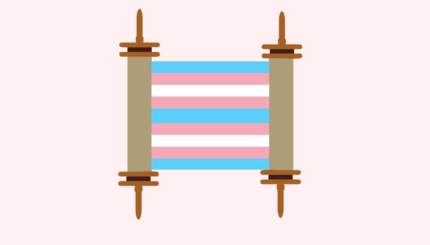After you read this paragraph, close your eyes for a minute and picture a rabbi.
Where is this rabbi?
What is the rabbi wearing?
What is this rabbi doing?
And finally… was that rabbi you pictured a man, or a woman?
When I asked this series of questions at a Sisterhood Shabbat service a few weeks ago in Mississippi, more than half the congregants said they pictured a male rabbi. This was not surprising to me. Men filled this role for hundreds of years, and the idea of a male rabbi is part of our tradition. But it is also important for us to consider the role women have in leading our communities and embrace them as leaders. I will go ahead and tell you right now that I am especially invested in this conversation, because I plan to enroll in rabbinical school and hope to serve as a congregational rabbi.
When I spoke on this topic at Sisterhood Shabbat, I called on the congregation to empower women as leaders in the Jewish community. I was especially adamant that women rabbis receive equal pay, which is not yet a reality.[1] These sentiments were mostly well-received, as I believe they would be in many congregations I visit. Most people have adjusted to the idea that women can be rabbis and that they should be treated with respect, but some communities are not quite sure how to do that.
In my travels across the South I have come across some interesting questions related to the role of women as rabbis. One thing I have found very interesting is the Name Question. As in, should rabbis be addressed as “Rabbi (last name)?” “Rabbi (first name)?” Just by a first name? I have met rabbis who employ each of these combinations and their reasons for doing so are compelling. Those who choose to go by their first names do so because it creates a closer relationship and allows them to do more sincere pastoral care. At the same time, calling clergy by their title and last name is a tradition which many people feel is a necessary sign of respect. I think there is an added layer of nuance for female rabbis, who might struggle to command an appropriate level of respect and who might choose to go by their last names to help with this issue.

Speaking of what to call someone, people in the communities I visit are often riveted by the question of what to call a woman rabbi’s husband in place of “rebbetzin,” the Yiddish word used for a rabbi’s wife. Some suggestions I have gathered include rebbetz-bro, rebbetz-him,[2] rebbetz-sir, and “the luckiest man in the world.” These questions and related suggestions are funny, but they also show that the concept of a woman rabbi is still relatively fresh, and we still have some details to work out.
Being an ISJL Education Fellow has prepared me for some of the challenges I expect to face as a young female rabbi. You might be shocked to learn that teachers, directors, and congregants are not always excited to take advice or direction from a 23-year-old. I have been learning to present myself in a dynamic, professional way that convinces these people to take me seriously despite my age. I expect the strategies I have learned to cope with this issue will be useful as I go forward. Being a Fellow has also confirmed for me how much I love to help Jewish communities grow to their fullest potential and how much I do, in fact, want to be a rabbi.
When I close my eyes, I can even picture it.
Like this post? Join the conversation through MyJewishLearning’s weekly blogs newsletter.
[1] According to a study published by the CCAR, women head rabbis receive, on average, as little as 80%-93% as much pay as their male counterparts.
[2] Thanks to the HUC Rabbinical School in Israel class of 2007 for the first two suggestions.
Shabbat
Pronounced: shuh-BAHT or shah-BAHT, Origin: Hebrew, the Sabbath, from sundown Friday to sundown Saturday.


